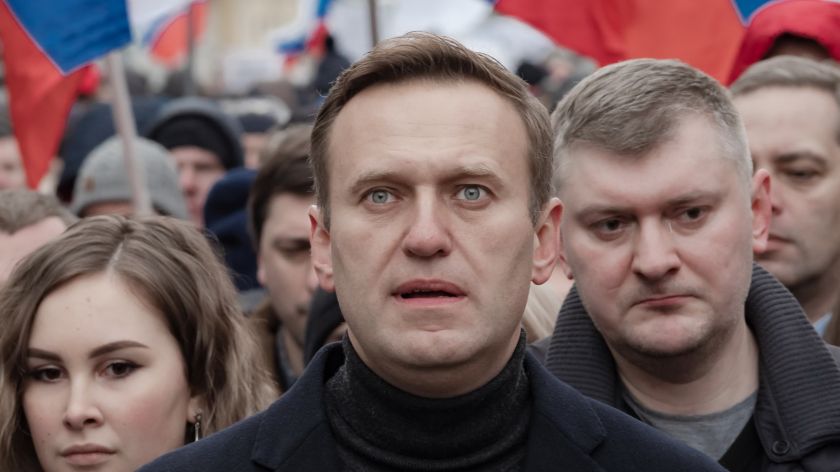Current affairs lecture on death Navalny: ‘Russian regime put on a show’
-
 Aleksej Navalny in 2020 Beeld: Wikimedia
Aleksej Navalny in 2020 Beeld: Wikimedia
The death of Aleksei Navalny caused a surge of grief and disbelief. What does this event mean for Russia’s political course and geopolitical situation? Is there still hope for the Russian opposition? Political philosopher and Russia expert Evert van der Zweerde will be discussing the opposition leader’s passing at Radboud Reflects.
Back in 2020, opposition leader and attorney Aleksei Navalny (47) survived a poison attack, but a year later he was tried and sentenced in a show trial for ‘starting an extremist movement’ and locked up. He died on February 16th after 37 months in one of the toughest, most remote prisons in Russia.
Evert van der Zweerde, professor in Political Philosophy as well as an expert on Russia, will be discussing the causes and consequences of Navalny’s death in Radboud Reflects’ current affairs lecture.
Were you surprised by the news of Navalny’s death?
‘No, I was expecting it any second. Navalny lived in terrible circumstances, and he was clearly deathly ill. I think that he was more or less artificially kept alive, and that it’s no coincidence that they decided to let him die now. It has everything to do with the upcoming presidential elections in Russia.
Will you always remember where you were when you heard?
‘I don’t think so. What I will remember is the moment I heard he had been poisoned. The important question now is not why he died, but rather why he lived for such a long time. The Russian regime could have disappeared Navalny in any number of ways over the past few years, so why did they keep him in prison so long? What compels a regime to do so?’
And do you have an answer?
‘The Russian regime put on a show, to demonstrate to any possible opposition that they decide what happens. Navalny was in no way a serious threat to Vladimir Putin. The regime had something to gain by this directed history. The Kremlin thought out precisely how to handle Navalny; they leave nothing to chance, except when chaos is the goal.’
You’ve spent a lot of time in Russia. How did your Russian connections respond to Navalny’s death?
For many of them he is a hero or martyr, who stood up in protest until the very end. I don’t think people had all their hopes set on Navalny, but he was definitely an important symbol. Many critics of the regime realise that they have little chance to make a difference; the situation appears hopeless, the people beaten down. Of course, that need not be for ever.’
How do you see Russia’s future?
‘The war in Ukraine is actually progressing well for Russia. They have time on their side. Research shows that roughly 15 percent of the population is against the war, while a little more people are in favour. The rest are simply trying to keep away and live their lives. For many of them it’s a long way away.
Putin himself will be watching the American elections with great interest. Recently, he indicated in an interview that he preferred current president Joe Biden, because he deems him more reliable than (his likely opponent, eds.) Donald Trump. Which is a remarkable statement to make.’
Why do you think Putin made that statement?
‘It’s possible he expects that it will make Biden less popular and decrease his chances of winning. But that is guesswork. What is fact, however, is that the Kremlin carefully considers all its actions and statements. That’s the advantage of a leader who can manipulate the news in a country with no critical journalism.
Furthermore, I expect that there will be a clear easing of regulations after Putin’s re-election. There will be a little more room for protests and critical articles. We saw the same thing at his earlier re-elections.’
The Radboud Reflects current affairs lecture will be held on Thursday, 12:30 to 13:15, in the Lecture hall complex, CC5, at Radboud University. The lecture will be in English. There will be no admission fee.
Translated by Jasper Pesch



